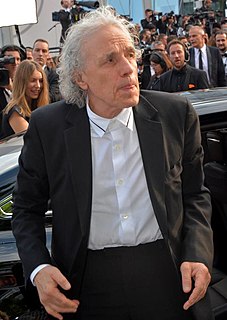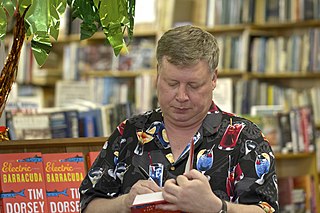A Quote by Andy Behrman
Like Sylvia Plath, Natalie Jeanne Champagne invites you so close to the pain and agony of her life of mental illness and addiction, which leaves you gasping from shock and laughing moments later: this is both the beauty and unique nature of her storytelling. With brilliance and courage, the author's brave and candid chronicle travels where no other memoir about mental illness and addiction has gone before. The Third Sunrise is an incredible triumph and Natalie Jeanne Champagne is without a doubt the most important new voice in this genre.
Quote Topics
About
Addiction
Agony
Author
Beauty
Before
Both
Brave
Brilliance
Candid
Champagne
Chronicle
Close
Courage
Doubt
Genre
Gone
Her
Illness
Important
Incredible
Invites
Later
Laughing
Leaves
Life
Like
Memoir
Mental
Mental Illness
Moments
Most
Natalie
Nature
New
Other
Pain
Plath
Shock
Storytelling
Sunrise
The Most Important
Third
Travels
Triumph
Unique
Unique Nature
Voice
Which
Without
Related Quotes
Once and for all, people must understand that addiction is a disease. It’s critical if we’re going to effectively prevent and treat addiction. Accepting that addiction is an illness will transform our approach to public policy, research, insurance, and criminality; it will change how we feel about addicts, and how they feel about themselves. There’s another essential reason why we must understand that addiction is an illness and not just bad behavior: We punish bad behavior. We treat illness.
When you have mental illness you don't have a plaster or a cast or a crutch, that let everyone know that you have the illness, so people expect the same of you as from anyone else and when you are different they give you a hard time and they think you're being difficult or they think you're being a pain in the ass and they're horrible to you. You spend your life in Ireland trying to hide that you have a mental illness.
The very term ['mental disease'] is nonsensical, a semantic mistake. The two words cannot go together except metaphorically; you can no more have a mental 'disease' than you can have a purple idea or a wise space". Similarly, there can no more be a "mental illness" than there can be a "moral illness." The words "mental" and "illness" do not go together logically. Mental "illness" does not exist, and neither does mental "health." These terms indicate only approval or disapproval of some aspect of a person's mentality (thinking, emotions, or behavior).
But you have to understand, mental illness is like cholesterol. There is is good kind and the bad. Without the good kind- less flavor to life. Van Gogh, Beethoven, Edgar Allen Poe, Sylvia Plath, Pink Floyd (the early Piper at the Gates of Dawn line up), scientific breakthroughs, spiritual revolution, utopian visions, zany nationalism that kills millions- wait, that’s the bad kind. Tim Dorsey (Hurricane Punch)
When I talk to the National Alliance on Mental Illness (NAMI) and other patient support groups, I take questions at the end. At one talk I was asked, "What's the difference between yourself and someone without mental illness?". At another talk I was asked, "How do you make the voices be not so mean?". I wish I knew.






































